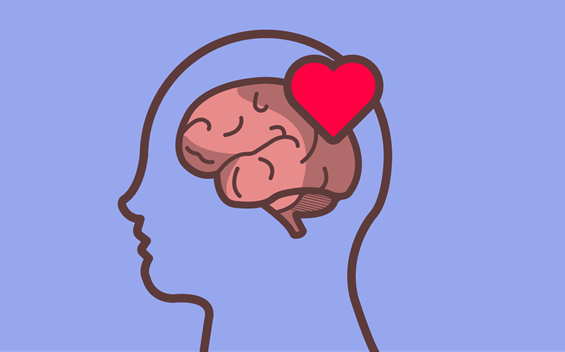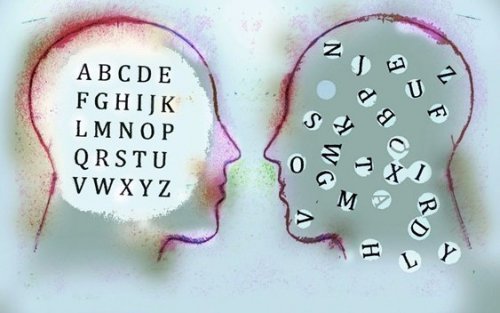Many people suffer from emotional illiteracy. They are experts in many fields, they have an infinity of degrees and diplomas, but they have the same emotional handling as a three-year-old child. This learning does not happen automatically and, like it or not, it is an essential issue to which we must dedicate more resources ...
We know for the most part what are the principles of good physical health, ie: a balanced diet that is as natural as possible, a little sport, sleep between 7 and 9 hours each night and perform regular medical check-ups to make sure That everthing is fine.
"When you listen to another person with empathy, you give them emotional oxygen".
-Stephen R. Covey-
However, if there is something that we almost neglect alarmingly, that is what is between our two ears: our brain. We are not referring here to this set of nerve cells, structures and convolutions. We must focus our attention on the indicators of our emotional health, that is, our ability to feel emotions in our lives and relationships, this ability to understand, control and change our moods and moods. plus ...
The human being is much more than a series of linguistic, mathematical or technological skills. Above all, we are social and emotional beings; However, these dimensions are often neglected or even underestimated in educational institutions. Let's face it, knowing how to solve a second-degree equation will not do us much good if we can not, for example, effectively communicate and empathize with those around us.

What is emotional illiteracy?
We know that the term "illiteracy" has a negative connotation. However, we can not call another psychosocial reality more than obvious. Let's take an example: in the news, we hear a lot about the figure of transforming leaders. People who can give energy to an organization through good management of emotional intelligence, motivation and their ability to impact others and create environments in which people can use their creativity.
Sometimes we sell ideas that, in reality, shine by their absence. Therefore, it is quite common to find ourselves facing directors or business leaders unable to inspire others and even less to control their emotions, their frustration, their anger ... These leaders are like 3 year old children who are angry because they do not get what they want. they want and are completely in the egocentric thinking defined by Piaget in his time.

Let's look at all the dimensions that characterize emotional illiteracy.
Inability to understand and manage their own emotions.
Difficulty understanding the management of their emotions.
This lack of emotional self-awareness often places these people in very sensitive areas. They react disproportionately to any problem, they feel completely suffocated and overcome in any difficulty, big or small.
They do not show empathy, they can not imagine the points of view of others, they understand realities different from their own.
Their social skills are extremely rigid, and although sometimes they can deal adequately, they lack sensitivity, assertiveness and genuine closeness that creates meaningful connections, not just relationships of personal interest.
In addition, the costs of emotional illiteracy can be enormous: polarized thinking, repression, racism or sexism, narcissism, obsessive need to be right ...

In addition, there is a very important information that should not be forgotten. Emotional illiteracy, lack of psychological resources and emotional mechanisms that allow us to better manage dimensions such as sadness, anger, fear or disappointment, make us much more vulnerable to mental disorders.
Therefore, disorders such as depression or chronic anxiety states are very common in people who have a nonexistent or weak ability to better manage these internal states.

The importance of education in emotional intelligence
We know that it is almost like a motto: "We need to educate in Emotional Intelligence", we need to train at the level of these skills, to be more apt in terms of emotions. We have heard it to the point that we can no longer, we have read books, followed courses and we are consenting each time we are reminded of the importance of having better skills in this area.
However, the gaps still exist. Therefore, and even if this objective already appears in the educational curriculum of some schools, we can not ignore an equally important fact, or even more. Before teachers and teachers teach children to master their thoughts and emotions, they should have been prepared in advance.
"Your intellect may be wrong, but your emotions will never lie to you".
-Roger Ebert-
Often, we reach our adult stage with a world of insecurities. We also wake up every day aware that we lack tools to master our emotions, as well as some skills to better face adversity. Therefore, if at the beginning we do not begin to realize our own emotional illiteracy, we can hardly have this talent to motivate the little ones, to instill notions of empathy, assertiveness or social skills. ...

A good "emotional literacy" provides us with great benefits. So one thing we learn at first is that each emotion has its space and its usefulness, that separate the "negative" emotions "positive" is not always true because, in reality, these states so we can avoid feeling like sadness or Disappointment have their spaces of knowledge, their usefulness and a precious meaning.
So do not run away from your emotions: you have to face them to know what they want to tell us. This is a sensational form of self-knowledge that gives us great strength, which offers a wider and more flexible prism in our eyes ... Therefore, do not discount or disregard the need to be "updated" in terms of emotions. Pay attention to these inner worlds that allow us to recognize, express, manage and transform these feelings so that they always play for us.





Great share! Sadly emotions are difficult to control at times ): @sugestiones
Downvoting a post can decrease pending rewards and make it less visible. Common reasons:
Submit
It's true brother @researchgeek , but we should always try to do it so that our life improves
Downvoting a post can decrease pending rewards and make it less visible. Common reasons:
Submit
I got a bit of that when I was crafted.
By the content you publish I guess you'll find useful this article I posted before: https://steemit.com/life/@softwaricho/sixteen-personalities-the-profile-website
Downvoting a post can decrease pending rewards and make it less visible. Common reasons:
Submit